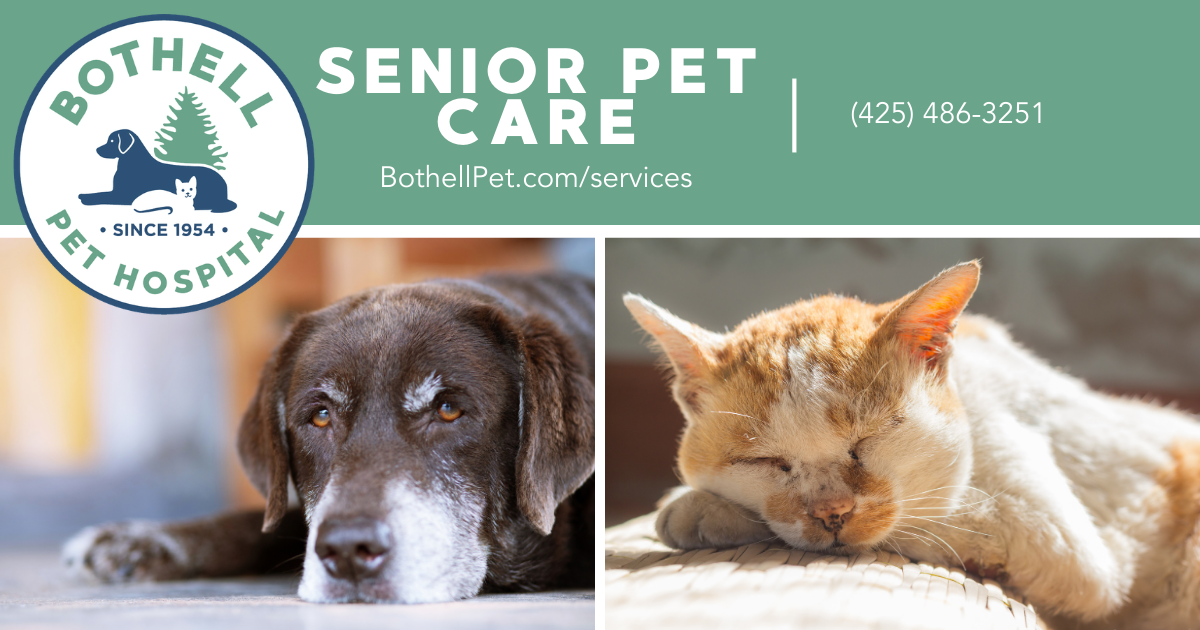Shop At Haya: Your Ultimate Shopping Guide
Discover the best shopping tips, trends, and deals for a smarter buying experience.
Aging Gracefully: Keeping Your Senior Pet Spry and Happy
Discover secrets to help your senior pet thrive! Unlock tips for keeping your furry friend spry, happy, and enjoying their golden years.
Top 10 Tips for Keeping Senior Pets Active and Engaged
As pets age, it's crucial to keep them active and engaged to maintain their physical health and emotional well-being. Here are the top 10 tips to help your senior pets thrive:
- Regular Vet Check-Ups: Ensure frequent visits to the vet to monitor their health and address any age-related concerns.
- Gentle Exercise: Incorporate low-impact activities like short walks or gentle play sessions to keep their joints moving.
- Mental Stimulation: Use puzzle toys or engage in training exercises to stimulate their mind and prevent boredom.
- Choose the Right Diet: A balanced diet tailored for senior pets can help maintain their energy levels and body weight.
- Social Interaction: Encourage playdates or family time to keep your pet socially engaged.
Continuing with our tips, here are five more ways to keep your furry friend active and engaged as they age:
- Comfortable Living Space: Ensure your pet has a cozy, comfortable area to rest and recover after activity.
- Routine: Establish a daily schedule for walks, meals, and playtime to create a sense of stability.
- Monitor Their Behavior: Pay attention to any changes in activity levels or habits, which may indicate health issues.
- Incorporate Swimming: If possible, swimming can be a gentle way for arthritis-prone pets to exercise without strain.
- Keep It Positive: Always use positive reinforcement to encourage behavior and participation in activities, making it a fun experience.

Understanding the Nutritional Needs of Aging Pets
As pets age, their nutritional needs change significantly, requiring a tailored approach to their diet. Older pets often have decreased energy levels and metabolism, which can lead to obesity if not properly managed. Understanding the nutritional needs of aging pets begins with recognizing the importance of high-quality proteins and reduced fat content in their food. Additionally, incorporating specific vitamins and minerals, such as antioxidants, can help support their immune system and overall health. Furthermore, essential fatty acids, like omega-3, can combat inflammation and promote joint health, crucial for maintaining mobility in older animals.
Another critical aspect of meeting the nutritional needs of senior pets is hydration. Aging pets may become less active and, in some cases, exhibit a decrease in thirst drive. This can lead to dehydration, which adversely affects their organ function. Therefore, it is vital to ensure fresh water is always available and consider incorporating wet food into their diet for added moisture. Regular veterinary check-ups can help monitor weight and make necessary adjustments to their diet. Remember, each pet is unique; what works for one may not work for another. Thus, staying informed and flexible in dietary choices is key to ensuring your pet's health in their golden years.
What Signs Indicate Your Pet May Be Aging Gracefully?
As your beloved pet ages, you may notice various signs that indicate they are aging gracefully. One common sign is a change in their energy levels; older pets often exhibit a more relaxed demeanor, preferring calm activities like leisurely walks or extended nap times over hyperactive play sessions. Additionally, you might observe a slight graying around their muzzle or paws, which is completely normal and signifies the wisdom that comes with age. Keeping an eye on these subtle changes is crucial, as they can help you adjust your pet’s routine to ensure their comfort in their senior years.
Another important aspect to consider is their behavior and overall health. If your pet continues to maintain a healthy appetite and good hydration, these can be positive indicators that they are aging gracefully. Regular veterinary check-ups can help monitor their dental health, joint mobility, and any age-related conditions that may arise. Observation of any changes in their sleeping patterns or social interactions also plays a vital role; an aging pet that remains sociable and engaged with family members is more likely to be enjoying their golden years.